#1998 Cannes Film Festival
Explore tagged Tumblr posts
Text

Bella Hadid | Atelier Versace Fall 1998 Dress dress | Cannes Film Festival | 2024
#bella hadid#atelier versace#atelier versace fall 1998#cannes film festival#2024 cannes film festival#2024
13 notes
·
View notes
Text










#May 15, 1998 #Canne Film Festival #falilv #photoshoot #pt 1
5 notes
·
View notes
Text


4 notes
·
View notes
Text

laeticia casta at the cannes film festival 1998
4K notes
·
View notes
Text
East Palace, West Palace in ep5 of Blue Canvas of Youthful Days
I have been punched in the solar plexus by Blue Canvas of Youthful Days episode 5. So much happens in that episode that is overwhelming, from Qi Lu setting up a Netflix-and-chill date with the clear intention of making a move, to his putting on the famous film East Palace, West Palace (1996), to Qi Lu hiding Qin Xiao in the closet, to Qi Lu's panic at his father realizing he's been lied to, to the devastatingly practiced way Teacher Liu steps to Qi Lu being abused and handles his father, to the way Qi Lu shuts down, to the way QIn Xiao keeps sending mixed signals and Qi Lu calls him on it directly. And nobody else in this episode let me rest either; Tan Fan trying to ask Teacher Liu to wait for him and Liu brushing him off AGAIN, and Turtle trying to call out
@lurkingshan was already more coherent than I can be right now about what happened in the episode in her post.
So instead I want to focus on some queer cinema history that this episode evoked by using East Palace, West Palace as the film that Qi Lu shows to QIn Xiao.
For those who don't know, EPWP is considered to be the first realistic depiction of a gay man in film by a mainland Chinese production. It is to my knowledge the first time a gay man says "I love you" to another man on screen. It was made before being gay was decriminalized in China (1997), and it was filmed by an independent production company and smuggled out of China to France in order to be finished and distributed. It ended up at the Cannes festival in 1997, but the director's passport was seized and he was placed under house arrest to prevent him from attending. Despite pressure to pull the film, it still aired that year. In 1998, the Film Law was passed to prevent anyone from making films outside of the studio system (and therefore censorship review), effectively preventing anything like EPWP from being made in the future.
The film is about a gay man who cruises in the notorious bathrooms in the parks on either side of Tiananmen Square getting harassed by police officers (a situation extremely familiar to the historical queer experience in Canada [where I'm from] as well) and playing what I'd describe as a psychological game with one of them; A Lan kisses the cop, runs, and then gets caught a second time, and uses the second police confession as an excuse to tell his life's story in the public record, all while pushing the police officer a little further into deviance. As far as I'm aware, this film has been banned in China since being made and never shown (please correct me if I'm wrong about that!).
This is hitting me hard because of the much more recent history of Blue Canvas of Youthful Days itself. As most of you know, but I'll capture here for posterity, episodes 1-4 of this show aired on iQIYI (a China-based app) on August 6, and within 24 hours they were pulled from the app with no information about the future episodes being shown. When I watched episode 5 today, after waiting for it for 3 months, I was immediately hit with a wave of anger that this gorgeous, emotionally moving and powerful episode had been held back from public consumption for months, for the same reasons that the film being shown within the episode had been withheld from viewing in its own country.
Censorship is such an ugly thing, it's hard to articulate but the emotions around it are so strong because we know, when they pull or refuse to show media that depicts our lives, it's because they don't want our lives to be real; they don't want us to exist. It's a very real threat. And to have this episode--which is all about an abused boy who is in very real danger but so bravely insisting that he shoot his shot and take his best chance at love and happiness anyway, using the iconic confession scene from one of the most famous banned films in Chinese queer cinema history to do it--to have this episode be the one that was prevented from airing......I am overwhelmed.
In the scenes they watch in episode 5, A Lan tries to prevent the officer from uncuffing him, and then the officer lets him go, but A Lan doesn't go far and comes back. He declares his love to the officer's face, and demands that his love be acknowledged and not dismissed. And the officer does not know what to do with it and reacts with violence, which is partially what A Lan has been angling at all along. The show really played with this by having all three of the couples in the show stymied by having their overtures dismissed this episode, but we almost didn't get to see it.
I'm so grateful this got distribution now, and on multiple platforms. Blue Canvas of Youthful Days is airing Saturdays and Sundays on GagaOOLala and Youtube (note, as per @thisonelikesaliens's excellent language posts, the subs on Gaga are much better), and on Mondays on Viki. I know there is an avalanche of content right now, but this show is so good and worked so hard to make it to us, please give it some love!
#blue canvas of youthful days#east palace west palace (1996)#typed so that i can stop thinking it#queer history
97 notes
·
View notes
Text

Catherine Fabienne Dorléac (born 22 October 1943), known professionally as Catherine Deneuve, is a French actress. She is considered one of the greatest European actresses on film. In 2020, The New York Times ranked her as one of the greatest actors of the 21st century.
Deneuve made her screen debut in 1957 at age 13, in a film shot the previous year when she was only 12. A major figure of the New Wave, she became, like Brigitte Bardot and Alain Delon, one of the best-known French artists in the world. In a career spanning nearly 70 years, she has played more than a hundred roles and is recognized in France and internationally for being one of the key faces of the musical film genre with appearances in The Umbrellas of Cherbourg, The Young Girls of Rochefort, Donkey Skin, 8 Women and The Beloved. Early in her career, she gained acclaim for her portrayals of aloof and mysterious beauties while working for well-known directors such as Luis Buñuel, François Truffaut, Jacques Demy, Roman Polanski, and Agnès Varda. She played in films attracting a total of nearly 99 million spectators in theaters, making her the working actress with the most admissions in France. In 1985, she succeeded Mireille Mathieu as the official face of Marianne, France's national symbol of liberty.
She has received numerous accolades over her career including two César Awards and the Venice Film Festival's Volpi Cup for Best Actress as well as nominations for an Academy Award and BAFTA Award. She has received honorary awards, including the Berlin International Film Festival's Golden Bear in 1998, the Cannes Film Festival's Honorary Palme d'Or in 2005, and the Venice Film Festival's Golden Lion in 2022.
In 1986, Deneuve introduced her own perfume, Deneuve. She is also a designer of glasses, shoes, jewelry and greeting cards. In 2005, she launched a limited-edition makeup collection for MAC Cosmetics. For the Catherine Deneuve eyewear line, she has had licensing agreements with Viva International (from 1989) and Marcolin (2014–2019) for the design, production and distribution of sunglasses and optical frames.
Daily inspiration. Discover more photos at Just for Books…?
14 notes
·
View notes
Text



Winona Ryder at Cannes Film Festival, 1998
10 notes
·
View notes
Video
youtube
Congratulations to Cher on her installation in the Rock and Roll Hall of Fame!
Often referred to by the media as the "Goddess of Pop", she has been described as embodying female autonomy in a male-dominated industry. She is known for her distinctive contralto singing voice, for having worked in numerous areas of entertainment and for adopting a variety of styles and appearances. Cher rose to fame in 1965 as one half of the folk rock husband-wife duo Sonny & Cher before releasing her first solo top-ten singles "Bang Bang (My Baby Shot Me Down)" and "You Better Sit Down Kids". Throughout the 1970s, she scored the US Billboard Hot 100 number-one singles "Gypsys, Tramps & Thieves", "Half-Breed", and "Dark Lady", becoming the female solo artist with the most number-one singles in US history at the time.
Cher reached a new commercial peak in 1998 with the dance-pop album Believe, which featured pioneering use of Auto-Tune to distort her vocals, known as the "Cher effect". The title track became the number-one song of 1999 in the US and the best-selling single of all time by a female artist in the UK.
Having sold 100 million records, Cher is one of the world's best-selling music artists. Her accolades include a Rock and Roll Hall of Fame induction, a Grammy Award, an Emmy Award, an Academy Award, three Golden Globe Awards, a Cannes Film Festival award, the Billboard Icon Award, and awards from the Kennedy Center Honors and the Council of Fashion Designers of America. She is the only solo artist to date to have a number-one single on a Billboard chart in seven consecutive decades, from the 1960s to the 2020s. Her 2002–2005 Living Proof: The Farewell Tour became the highest-grossing concert tour by a female artist ever at the time, earning US$250 million (equivalent to $390 million in 2023). Aside from music and acting, she is noted for her trendsetting, elaborate outfits, political views, social media presence, philanthropic endeavors, and social activism, including LGBT rights and HIV/AIDS prevention.
9 notes
·
View notes
Text
Let’s bring back this pic

Daniel Craig during Cannes Film Festival (1998?)
#daniel craig#love is the devil: study for a portrait of francis bacon#think that’s what this was promo for ?#love how that movie is getting more attention now bc of#queer 2024#anyway#oh daniel#you beautiful weirdo#why are all his early photoshoots just him in really weird positions#james bond#benoit blanc
13 notes
·
View notes
Text
Petite rétrospective photographique de la part de Never Fear Truth des venues de Johnny Depp au Festival de Cannes au fil des ans… On apprécie ! 🥰








Surnommé ses débuts de "comeback" par des tabloïds (il n'est jamais parti ! ), la présence de Johnny Depp au Festival de Cannes cette fois l'année dernière a été accueillie avec enthousiasme par les fans. L'acteur, musicien et artiste a reçu une standing ovation de plus de sept minutes pour son film « Jeanne du Barry » récemment sorti, où il joue en tant que Roi Soleil, le roi Louis XV. Alors qu'il saute le tapis rouge cette année pour travailler sur son film Modì, nous revenons sur les moments les plus mémorables de la star de cinéma à Cannes.
Crédits images
Couverture. Johnny Depp à Cannes pour Jeanne du Barry 2023
Diapositive 2. Johnny Depp et Sharon Stone à Cannes en 1992. Piscine ARNAL/PAT/GARCIA
Diapositive 3. Johnny Depp à Cannes 1998. Archive de Tony Barson
Diapositive 4. Johnny Depp à Cannes en 1995. Richard Blanshard
Diapo 5. Penelope Cruz et Johnny Depp au Cannes 2011. JEAN BAPTISTE LACROIX/FILMMAGIC
Diapo 6. Johnny Depp sur le tapis rouge à Cannes 1997. THIERRY LEFOUILLE/GAMMA-RAPHO VIA GETTY IMAGES
Diapo 7. Johnny Depp à Cannes 1998. Archive de Tony Barson
Diapo 8. Johnny Depp au photocall d'Ed Wood à Cannes 1995. Piscine BENAINOUS/DUCLOS
12 notes
·
View notes
Text

Kate moss , Johnny depp at Cannes Film Festival, 1998.
4 notes
·
View notes
Text










#May 15, 1998 #Canne Film Festival #falilv #photoshoot #color #pt 2
3 notes
·
View notes
Text




März 2023:
> Illuminata video I video II video III ("Theater") Interview Cannes
"25 Jahre Illuminata": oben: Rufus Sewell mit Christopher Walken beim 51. Cannes Film Festival, May 1998 (Rufus' favorite Walken movie is Catch me if you can, if I remember correctly). An extreme case in Illuminata is Christopher Walken as despised, feared critic. He is a fop, has hair like a bad version of an Oscar Wilde cut, and pursues a younger actor. Everything he does or says is funny. Example: "They say I like nothing. It's not true. I like chocolate and Caravaggio. " Walken's ever-odd appearance, with his ambiguous, hairless face, reaches a peak here.
British actor Rufus Sewell, who plays Dominique, the theatre troupe's self-absorbed leading man, credits the film's overall tone of authenticity for attracting him to ILLUMINATA. "It's about real people, real beliefs and passion; it's not just a satire," he says. "As a theater person I recognize these people. They're not stereotypes-I've brushed up against each character in my work. The average theatre company is just like this." (production notes from my former CW website)
12 notes
·
View notes
Text




Bono and Ali, Cannes Film Festival - May, 1998 [photos by Alain Cinquini]
#the way she looks at him 🥺#they make me believe in true love and all#bad quality pictures of a high quality couple#found these pictures by accident and now I'm obsessed with them#U2#Bono#ali hewson#bono vox#u2 band#u2 fam#bono u2
6 notes
·
View notes
Text

PETER MULLAN IS RED JACOB MACKENZIE
Peter Mullan is a Scottish actor and filmmaker, he was born in Peterhead, a town in Aberdeenshire, Scotland 🏴 UK. He was interested in directing films at the age of 19 and he made several shorts. He decided to dedicate himself to acting and made his debut in the theatre in 1988 before moving to cinema and television.
His feature film work over the last several decades stretches across every genre, including roles in Riff-Raff (1991), Braveheart (1995), Trainspotting (1996), Miss Julie (1999), Young Adam (2003), Children of Men (2006), The Red Riding Trilogy (2009), War Horse (2011) The Vanishing, the Harry Potter film series (2010–11) and The Vanishing (2018).
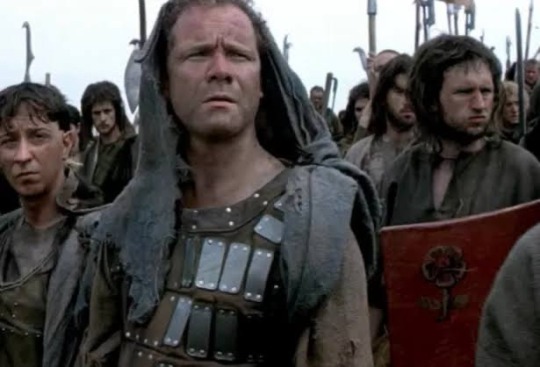
Although his part in Braveheart was a small recurring role as one of the Scottish army foot soldiers, Mullan was to go on to enjoy a breakthrough shortly after Gibson’s classic film hit cinemas.
He followed Braveheart with his part as the drug dealer Mother Superior in Trainspotting, then found himself being fêted by Martin Scorsese when he won the best actor award at Cannes for Ken Loach’s film, ‘My Name Is Joe’ (1998), filmed in Argyll and Glasgow.
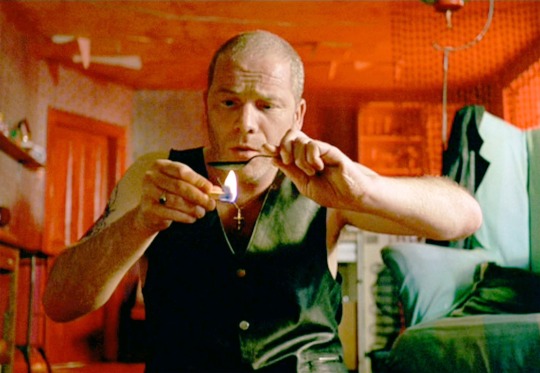
Trainspotting 1996 ‧ Crime/Thriller
Mullan has a vast body of work but is probably best known for his portrayal of Joe in the 1988 Ken Loach film ‘My Name is Joe’. For this work, he won the highly prized Best Actor Award at the Cannes Film Festival.
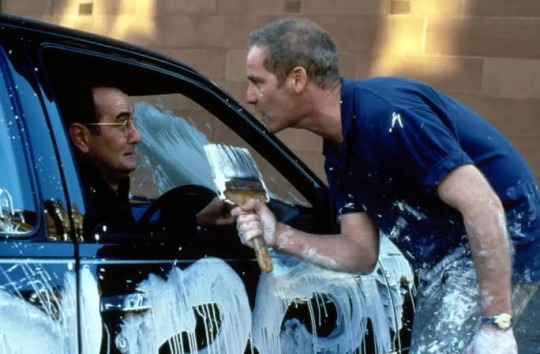
Mullan in My Name is Joe, directed by Ken Loach. Photograph: Allstar Picture Library
A few years later, in 2011, the Sundance Film Festival awarded Mullan a World Dramatic Special Jury Prize for Breakout Performances for his role as Joseph in Paddy Considine’s Thriller/Drama ‧ ‘Tyrannosaur’ (2011) with Olivia Colman.

Since then, Mullan has gone on to work with directors like Steven Spielberg (War Horse 2011 ‧ War/Adventure ) alongside Jeremy Irvine and with Alfonso Cuarón popped up as a totalitarian crank in Alfonso Cuarón’s Children of Men, goading the dispossessed into parading their “refugee face”. On Mullan suggestion, Cuarón swapped his character’s weapon of choice for something less obvious, but more threatening, and has become one of the most respected modern film and TV actors.

War Horse 2011 ‧ War/Adventure ‧ Film of the Year 2012
He has also made his name as a director, with acclaimed movies such as Neds, Orphans and The Magdalene Sisters.

His other film credits include ‘Hercules’ 2014 ‧ Action/Fantasy alongside Dwayne Johnson as General Sitalces, Commander of the Thracian army. Lord Cotys's second-in-command right-hand man portrayed by the late John Hurt.
Sunset Song, 2015 ‧ Romance/Drama Terence Davies’s adaptation of Lewis Grassic Gibbons’s novel, stars Agyness Deyn as Chris, a Scottish farm worker who sees family trauma merge into global catastrophe as the First World War devastates her village.
youtube
Starring Peter Mullan, as Chris’s abusive dad. was filmed at various locations across Scotland in Aberdeenshire, including Fettercairn and the Glenmuick, Glen Tanar, Invercauld and Ballogie estates. Sunset Song is certainly a masterpiece of Scottish/ British literature and was voted Scotland's favourite book.
Scots Quair is actually three books, Sunset Song, Cloud Howe and Grey Granite, that tell the story of Chris Guthrie, a young woman in the North East of Scotland, moving from the hard, rural life of her adolescence to adulthood and marriage. A Scots Quair is one of the most important works of Scottish literature.
Tommy's Honour 2016 ‧ Sport/Romance is based on the powerfully moving true story (and novel of the same name by Kevin Cook) of the challenging relationship between “Old” Tom and “Young” Tommy Morris, the dynamic father-son team who ushered in the modern game of golf.
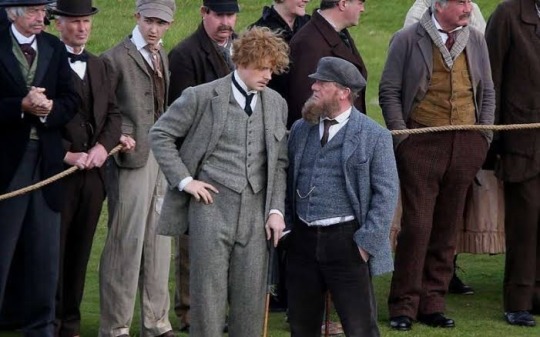
Tommy's Honour 2016
Peter Mullan stared as Tom with Jack Lowden playing his son. The film was filmed in the Edinburgh city region including Peebles and Musselburgh golf course.
youtube
He also played Yaxley in ‘Harry Potter and the Deathly Hallows’, parts 1 and 2. In TV, he’s played characters in ‘Westworld’, ‘Top Of The Lake’ and Netflix’s ‘Ozark’ as Jacob Snell. [Netflix]
In 2020 He was great in #Ozark portraying local crime lord Jacob Snell, The crime boss of Osage Beach until he died in season two of the Netflix hit.

Ozark 2017 ‧ Drama ‧ 4 seasons
The Lord of the Rings: The Rings of Power (TV Series 2022– ) - Peter Mullan played Durin III king of the dwarves and builder of the great halls of Moria.
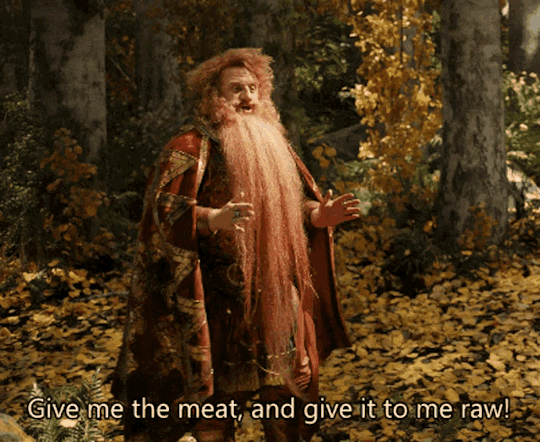
Moria is introduced in Tolkien's novel The Hobbit and is a major scene of action in The Lord of the Rings. In the fictional world of J. R. R. Tolkien, Moria, also named Khazad-dûm, is an ancient subterranean complex in Middle-earth.
On the big and small screen, from sci-fi to action and comedy, there are plenty of Scots actors who have made a huge impact on the world of acting. Just take a look at the right place where you will find them in Scotland 🏴
#PeterMullan #Scotland #actor #filmmaker #Peterhead #RedJacobMackenzie #BOMB #Braveheart #Trainspotting #MartinScorsese #bestactor #CannesFilmFestival #KenLoach #MyNameIsJoe #Tyrannosaur #OliviaColman SundanceFilmFestival #ChildrenofMen #WorldDramaticSpecialJuryPriz #Hercules #DwayneJohnson #GeneralSitalces #book #SunsetSong #Scottishliterature #TerenceDavies #LewisGrassicGibbons #Tommy'sHonour #novel #Kevin Cook #TommyMorris #Musselburghgolf #Netflix #Ozark #JacobSnell #DurinIIIking #Moria #RingsofPower #Tolkien'snovel
Posted 5th April 2024
2 notes
·
View notes
Text
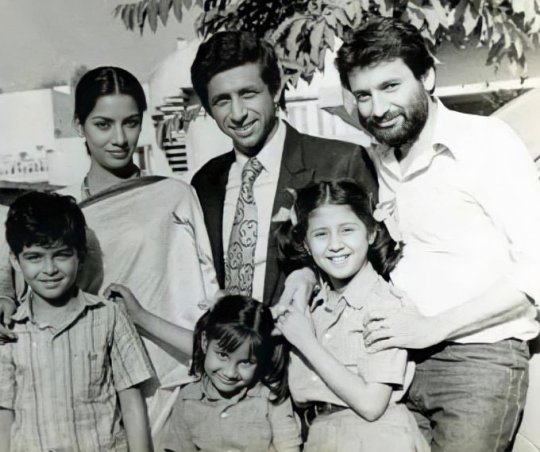
Happy Birthday, #ShekharKapur (06/12).
Shekhar Kulbhushan Kapur, born on December 6, 1945, is a director and actor. He comes from the Anand-Sahni family. Kapur has won many awards, including a BAFTA, a National Film Award, a National Board of Review Award, and three Filmfare Awards. He was also nominated for a Golden Globe.
Kapur became famous in India for his role in the TV show "Khandaan." His first movie as a director was "Masoom" in 1983. He became very well-known for directing "Mr. India" in 1987. In 1994, he got international fame for "Bandit Queen," a movie about Phoolan Devi, a notorious Indian bandit and politician. This movie was shown at the 1994 Cannes Film Festival and the Edinburgh Film Festival.
He became more famous internationally with "Elizabeth" in 1998. This movie, set in the past, is about Queen Elizabeth I of Britain and was nominated for seven Academy Awards. He directed "The Four Feathers," a war movie, in 2002. In 2007, he made "Elizabeth: The Golden Age," a follow-up to his 1998 movie "Elizabeth."
Director Shekhar Kapur with his actors #ShabanaAzmi, #NaseeruddinShah, #UrmilaMatondkar, #JugalHansraj and Aradhana Srivastav on the sets of #Masoom.
4 notes
·
View notes